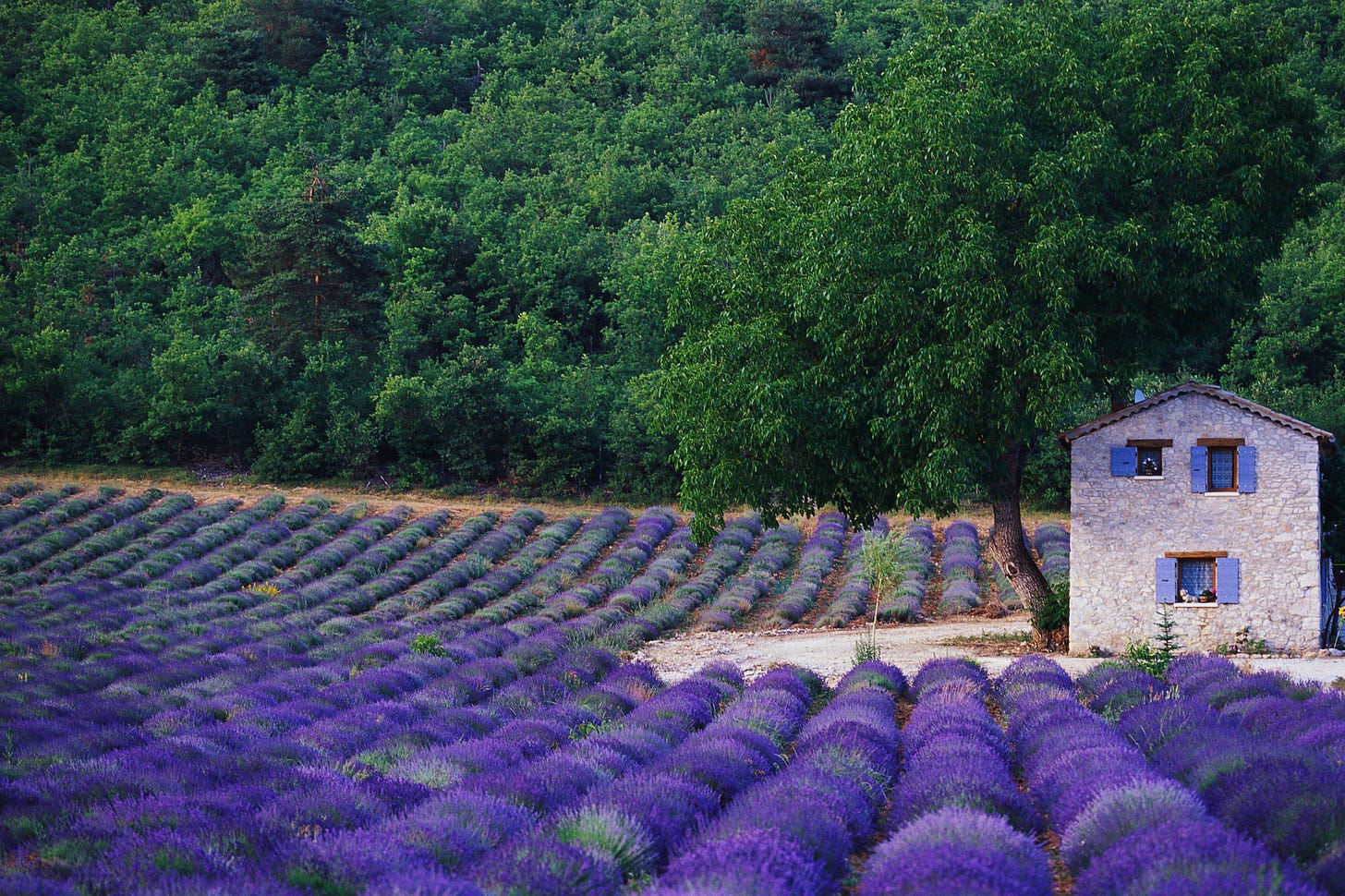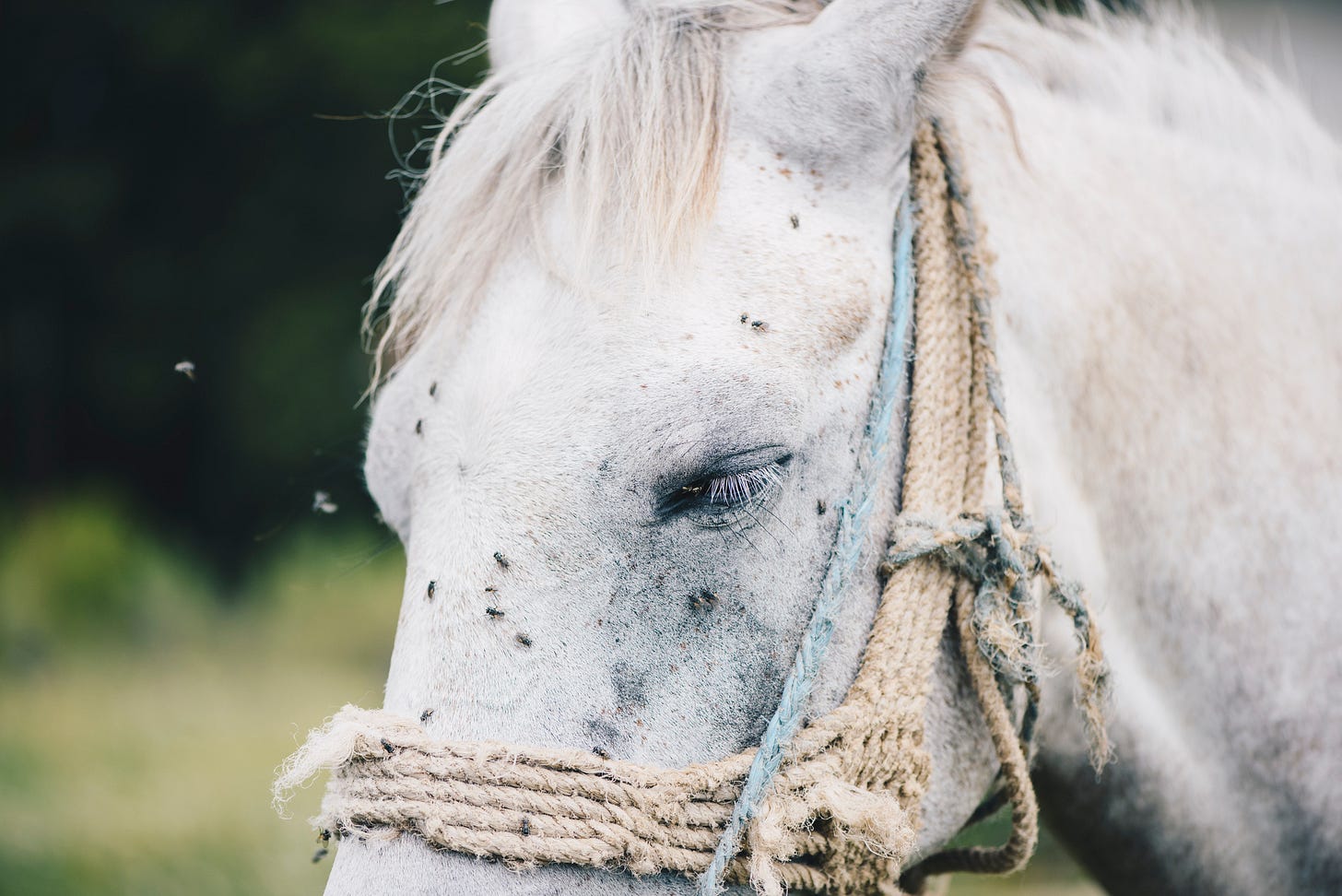Don't Kill My Buzz
How life's little annoyances can lead to self-growth.
This summer I was lucky enough to go to the south of France on holiday.
France is, as everyone knows, a wonderful country. Yet in addition to the brilliant food, weather and culture that I’d expected, I also discovered something new (to me, at least). It was a philosophical lesson: one that began with something very specific, but which also has significance for everyday life.
It’s that sometimes annoyances are good for you.
French flies
The realization came to me when endlessly battling flies. In the south of France, insects buzz around you continually: there are mosquitoes in your bedroom at night humming in the dark, wasps in the swimming pool during the day trying to drink the water, and flies attempting to land on your lunch whether indoors or out. The last is arguably the most annoying; numerous and extremely persistent, flies are a permanent fixture of rural French life.
The reason for their omnipresence is that the south of France is an ideal habitat for flies. It’s a patchwork of farms and forests, and in the summer heat, all the waste produced by both flora and fauna makes for a fertile breeding ground.
The upshot is that the unassuming holiday-maker only has to take a soft, smelly fromage from the fridge to find themselves instantly under siege.
It is, as I say, extremely annoying. So in what way can this annoyance be valuable?
Being part of the whole
The answer lies in their ecological significance. Put simply, if flies are absolutely everywhere then you’re probably in the presence of a thriving ecosystem.
How so? Well, for one thing, flies help to break down decomposing organic matter, which is good for soil (but which also explains their attraction to blue cheese, alas). Secondly, flies play a major – and largely unappreciated – role in pollinating flowers, which of course helps a great many plant species. Lastly, flies are a favorite food of various animals, such as birds and reptiles, meaning that they form part of the food chain.
So flies are, in addition to being very annoying, a feature of a healthy temperate ecosystem. What philosophical significance does this ecological fact have, though?
The beauty of looking at the world ecologically is that it invites us to rethink our place in nature, and, as a result, rethink who and what we are. Indeed, the great Norwegian philosopher Arne Næss (1912–2009) based the philosophical school of deep ecology on exactly this notion.
Writing in the 1970s, at the beginning of the modern environmental movement, Næss argued that the true significance of ecology is generally misunderstood. In the West, at least, we tend to think of the environment as a mere backdrop for our lives: one that we depend on for food, certainly, but which beyond that is irrelevant to our largely autonomous lives.
Many of us unthinkingly adopt this view even when considering green issues such as climate change. For Næss, however, this is to take merely the “shallow” approach to thinking about the environment. As such, he contrasted it with his own “deep” ecological platform, which invites us to take the findings of ecology in their full significance.
Næss believed that ecology offered a kind of empirical counterpart to Spinoza’s metaphysics. Spinoza claimed that you and I, and everything else in existence, are simply parts of the whole that is God-or-Nature (Deus, sive Natura, as Spinoza put it). We all belong, in other words, to a greater unity.
Næss suggests that a very similar picture emerges from ecology, which involves looking at the natural world as a system of interrelated actors and processes. Animals, plants, and non-living entities such as the sun and the oceans all affect one another through their activities. Think of how the cycles of the moon affect tides: What countless consequences must this have on coastal communities? Like Spinoza’s God, every individual entity in nature is no true individual at all, but rather part of an ecological system and comprehensible only in relation to others in that system.
The name for this system is the biosphere, and within it, all creatures are one.
Looking at the world anew
Næss argues that several insights follow from this view of the world, some of which are truly transformative.
Firstly and most importantly, Næss believes that ecology can and should lead to greater self-realization. His use of the phrase is deliberate, because, just as we have a physical self, a mental self, and a social self, we also have an ecological self. This is our position in the system of inter-relationships making up nature, and when we acknowledge it we realize an aspect of ourselves that previously lay hidden from us. The depth of deep ecology lies in attaining precisely this greater understanding of ourselves.
Secondly, Næss suggests that ecology, viewed deeply, encourages us to rethink the worth of the actors and processes making up the systemic whole that is the biosphere. In addition to any other value a creature may have, each has a value insofar as it keeps the whole system going. This means that although human beings have a unique dignity, courtesy of their personhood, all creatures are valuable to some degree courtesy of the biospheric role that they play.
Reconsidering annoyances
If we bear these deep ecological insights in mind we come to see ourselves differently, our place in nature differently.
This overarching shift in worldview then has a knock-on effect for how we relate to other beings, living and otherwise, that form part of the biosphere. We might become a little more accepting of the wind and rain, and recognize that the year cannot be one endless summer; each season and form of weather plays a role in keeping the system of life flourishing.
This lesson brings me back to where we began. For those of us lucky enough to visit France on holiday there’s an additional insight, which is this: no matter how annoying flies and wasps and mosquitoes might be to us as individuals, the individual perspective is only one view on the world open to us. When we take the alternative deep ecological perspective, we remember that flies and mosquitoes, and other such annoyances are also vital to the ecosystem to which we belong. They are, on the ecological plane, not just good for us, but in fact a great friend and benefactor — which isn’t so annoying, after all.







Try to tell someone dying of some disease carried on by those "annoying" insects that they should be appreciated. Yes, everything IN ITS PLACE belongs, but insects do NOT belong on human beings or their food. Sometimes we need a good Zen slap to understand this.